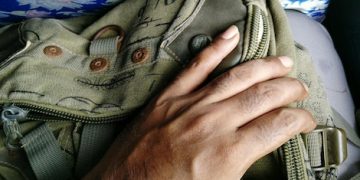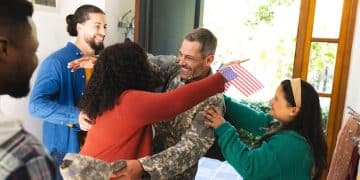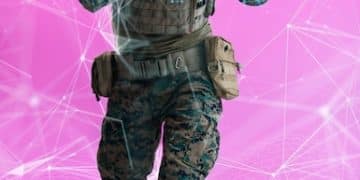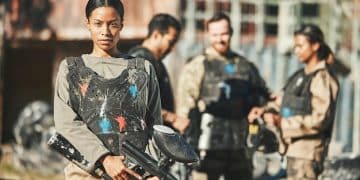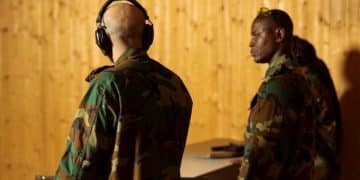The Importance of Military Brotherhood: Bonds That Last a Lifetime
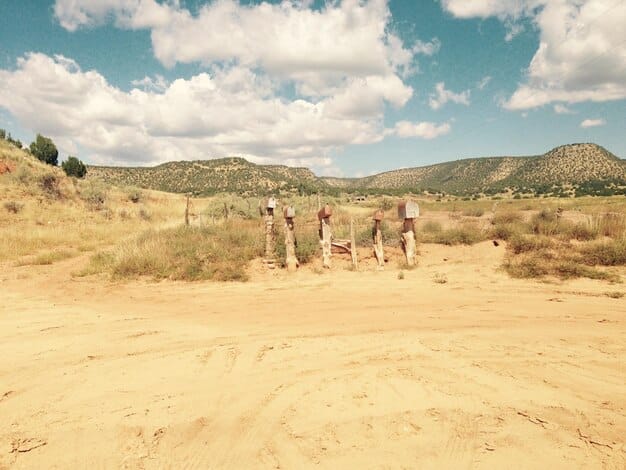
Military brotherhood highlights the profound bonds forged among service members, providing unwavering support, resilience, and a shared identity that extends far beyond their active duty.
The military experience is unique, demanding courage, discipline, and sacrifice. However, beyond the rigorous training and challenging missions, something extraordinary emerges: a powerful sense of military brotherhood. These bonds, forged in shared adversity, create a support network that lasts a lifetime.
What is Military Brotherhood?
Military brotherhood goes beyond simple camaraderie; it represents a deep and enduring connection between individuals who have served together. It’s a bond built on shared experiences, mutual trust, and the understanding that each member is willing to put their life on the line for the other.
This unique relationship extends beyond shared coffee breaks and workplace antics. It is about having someone who understands the magnitude of hardship and sacrifice that they have all gone through.

The Foundations of Military Brotherhood
Several factors contribute to the formation of such strong bonds within the military. These foundations are developed during training and active war missions.
Shared Experiences: Forging Unbreakable Ties
Military service members experience situations that civilians can scarcely imagine. They endure rigorous training, face life-threatening scenarios, and witness the harsh realities of war firsthand. These shared experiences create a unique understanding and empathy between them.
Mutual Reliance and Trust
In combat, lives depend on teamwork and unwavering trust. Service members must rely on one another to perform their duties effectively and protect each other’s backs. This interdependence fosters a deep sense of trust and responsibility.
A Sense of Belonging: More Than Just a Unit
The military attracts individuals from diverse backgrounds, but they are united by a common purpose: serving their country. This shared commitment creates a powerful sense of belonging and a shared identity, which can be especially important for those away from home and family.
- Shared hardships: The shared trials the troops go through bring unity.
- Camaraderie: Working together is what establishes camaraderie between military members.
- Family: A military unit can become like a family, offering its recruits a place to fit in.
Military brotherhood is not a formal agreement but a tacit understanding amongst those connected by their sacrifices as service members. It’s something that the members of a given military unit come to cherish.
Why is Military Brotherhood Important?
The benefits of military brotherhood extend far beyond the battlefield. These bonds provide essential support, promote resilience, and contribute to the overall well-being of service members.
It’s worth emphasizing the importance of these connections, especially for those who have undergone some sort of trauma whilst in service.
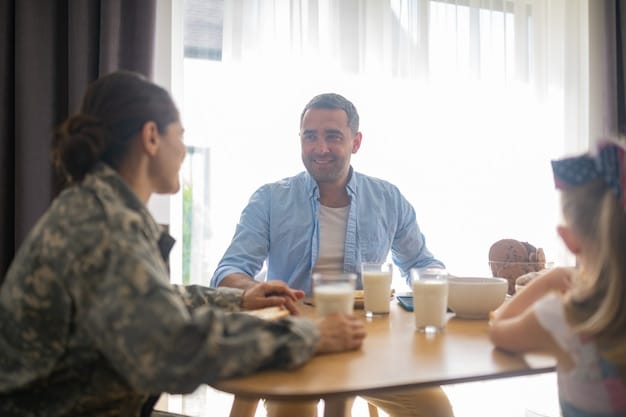
Mental and Emotional Support
Service members often struggle with the psychological effects of war and the challenges of transitioning back to civilian life. Military brothers offer a safe space to share their experiences, seek support, and cope with trauma.
Resilience in the Face of Adversity
The bonds of brotherhood provide resilience in the face of extraordinary situations. It means that even after traumatic scenarios, service members are able to bounce back and live their lives to the fullest.
A Network for Life
Military brotherhood extends far beyond active duty. Veterans continue to rely on these relationships for social support, career advice, and a sense of community. These networks can be critical for navigating the challenges of civilian life.
- Transition Assistance: Military brotherhood can help the veterans transition after retiring from service.
- Family: This unique support system can replace the family for some veterans.
- Assistance in hardships: Even many years after war assignments, the veteran can call up his military buddy in times of need.
For many of those who have been in active service, military brotherhood is the thing that makes them feel like their assignment was not in vain. It provides the service members with a mission long after their time in service ends.
The Impact of Military Brotherhood on Mental Health
The mental health of veterans is a critical concern. Military brotherhood plays a significant role in mitigating the effects of PTSD, depression, and other mental health challenges.
Unfortunately, far too many service members often undergo life altering traumatic events while on deployment. Having access to the benefits of military brotherhood can make all the difference for a unit member in distress.
Combating Isolation and Loneliness
Many veterans report feelings of isolation and loneliness after leaving the military. Military brothers provide a vital connection to a community that understands their experiences, reducing feelings of social isolation and promoting mental well-being.
Reducing the Stigma of Mental Health
The military culture has historically been resistant to seeking mental health treatment. However, military brotherhood can help break down this stigma. By encouraging open communication and support, service members can feel more comfortable seeking help when they need it.
Supporting Recovery and Healing
Military brothers can provide invaluable support during the recovery process from trauma and mental health challenges. They can offer a listening ear, share coping strategies, and provide encouragement.
The psychological and emotional assistance that comes with military brotherhood is something that cannot be replicated elsewhere. Many that have gone through similar experiences would be able to relate and provide the individual with the advice that he needs most.
Examples of Military Brotherhood in Action
There are countless stories of military brotherhood demonstrating extraordinary acts of courage, loyalty, and support. Here are but a few.
These stories of military brotherhood are the kind that are passed on during reunions and at military bars during happy hours.
Saving Lives on the Battlefield
Countless service members have risked their lives to save their brothers in arms. These acts of bravery, often performed under intense pressure, exemplify the unwavering loyalty that defines military brotherhood.
Providing Support After Deployment
Veterans often face significant challenges after returning from deployment, including unemployment, homelessness, and mental health issues. Military brothers step up to provide practical assistance, emotional support, and advocacy to help their comrades navigate these challenges.
Building a Supportive Community
Many veterans organizations are built on the foundation of military brotherhood. These organizations provide a sense of community, access to resources, and opportunities for veterans to connect with one another.
- Donations: The brotherhood is also based on willingness to support the causes and charities of the unit members.
- Remembrance events: The military members celebrate the lives of those who have made the ultimate sacrifice during battle.
- Helping with careers: In a military unit, it is common to find members helping each other start businesses and embark on new careers.
Most importantly, military brotherhood should be an example for the upcoming generations. Military brotherhood is a concept that can also be implemented in normal society between people who have no affinity.
How to Foster Military Brotherhood
Creating a culture of brotherhood within the military requires a conscious effort from leaders and service members alike.
Here is what one can do as a leader or member of the military unit to help strengthen military bonds and improve troop cohesion.
Encouraging Open Communication
Creating a safe space where service members feel comfortable sharing their experiences, fears, and concerns is essential for building trust and fostering brotherhood. Leaders can promote open communication by actively listening, demonstrating empathy, and encouraging vulnerability.
Promoting Teamwork and Collaboration
Teamwork is the cornerstone of successful military operations. By fostering a culture of teamwork and collaboration, leaders can create opportunities for service members to build relationships, learn from one another, and develop a shared sense of purpose.
Recognizing and Celebrating Achievements
Acknowledging and celebrating the achievements of service members, both individually and as a team, reinforces positive behaviors, boosts morale, and strengthens the bonds of brotherhood. Simple gestures, such as publicly recognizing outstanding performance or organizing team-building events, can have a significant impact.
- Lead by example: The leader has to set the example for the followers and show them how to behave.
- Organize get-togethers: It is important to have reunions and occasional member get-togethers for all.
- Facilitate knowledge transfer: Knowledge transfer must be facilitated by the experienced ones to the less experienced members of the military.
Military brotherhood is one of the things that makes the army members stronger. Being able to count on their military brothers is something that helps them get through very difficult situations during missions and at home.
Military Brotherhood Beyond Active Duty
The bonds of military brotherhood do not dissolve when service members return to civilian life. In fact, these relationships often become even more important during the transition process and beyond.
They continue to thrive thanks to reunions and continuous communication between the military members.
Maintaining Connections
Veterans can maintain connections with their military brothers through social media, alumni associations, and veterans organizations. Staying in touch, even from a distance, can provide a sense of continuity and belonging.
Supporting Veteran Causes
Many veterans continue to serve their comrades by supporting veteran causes, such as organizations that provide assistance to homeless veterans, mental health services, and career training. These efforts reinforce the bonds of brotherhood and demonstrate a continued commitment to serving one another.
Sharing Stories and Experiences
Sharing stories and experiences with other veterans can be therapeutic and empowering. By sharing their stories, veterans can connect with one another on a deeper level, validate their experiences, and find healing.
These connections ensure that military brothers will always be around to assist each other. This can be an encouraging factor for those who are currently pondering whether or not to enlist in the military.
| Key Point | Brief Description |
|---|---|
| 🤝 Support System | Provides mental and emotional support. |
| 🛡️ Resilience | Offers resilience in severe and traumatic scenarios. |
| 🫂 Sense of Belonging | Gives military members a sense of belonging. |
| 💪 Continued Service | Allows veteran’s service to continue. |
FAQ
What are some ways to maintain military brotherhood after service?▼
Veterans can use social media, attend reunions, and participate in veteran support groups.
What role does communication play in military brotherhood?▼
Open and honest communication is key to building trust and understanding amongst service members.
How can leaders foster greater brotherhood within units?
▼
Commanding officers can assist by emphasizing teamwork and celebrating the unit’s accomplishments and events.
What kind of benefits can come from military brotherhood?
▼
